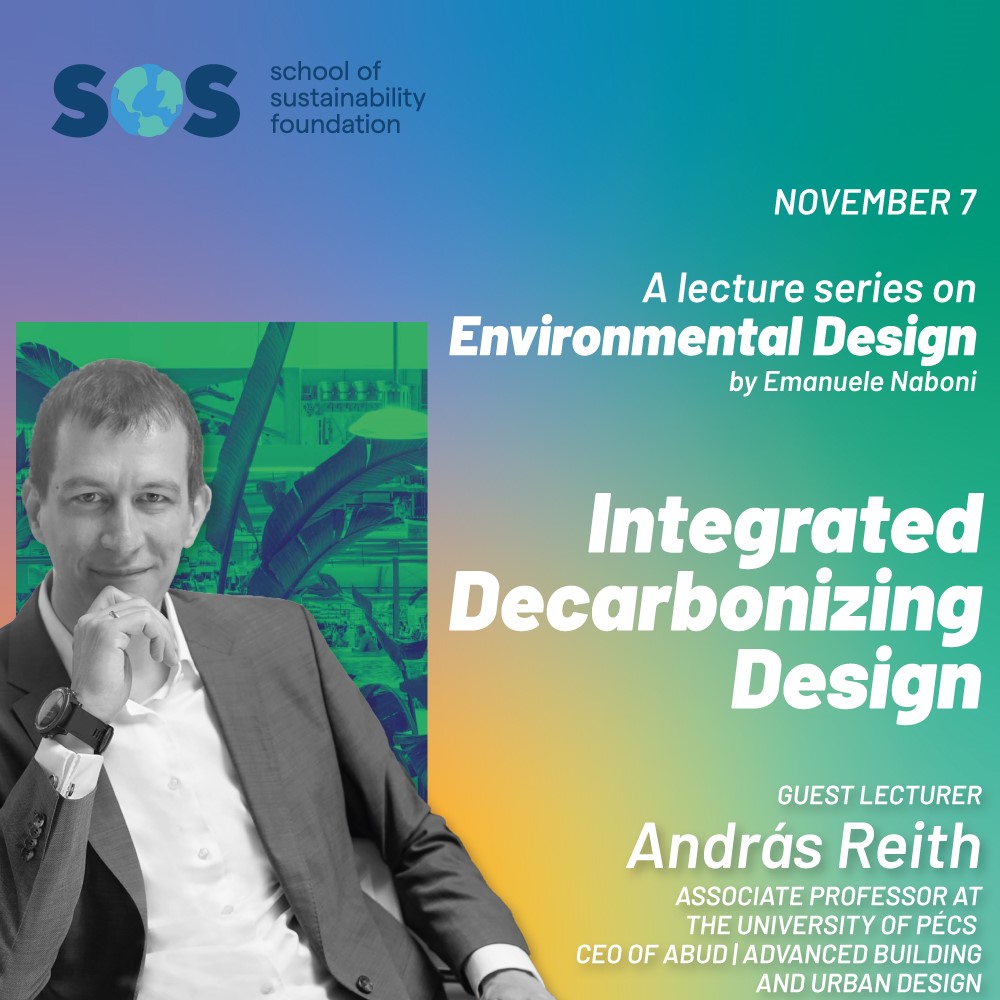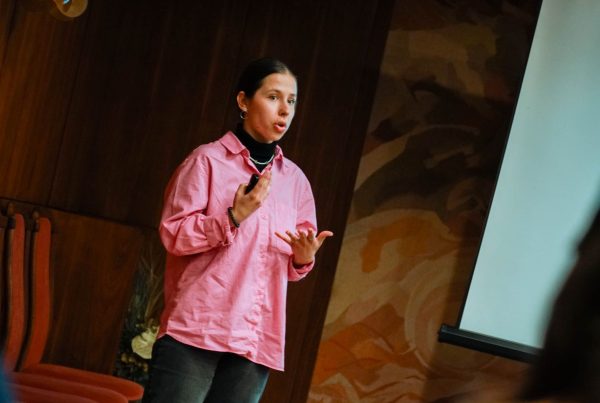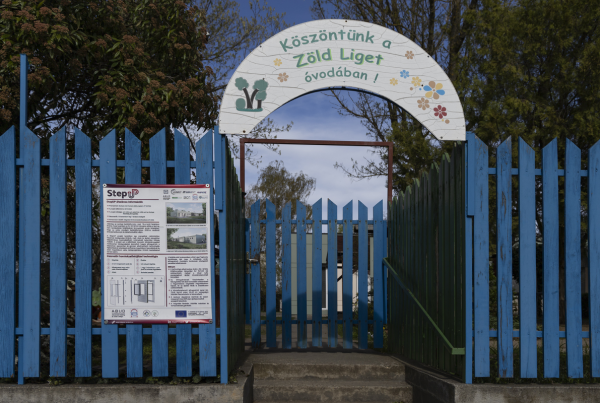LECTURE ABOUT INTEGRATED DECARBONIZING DESIGN
Dr. András Reith PhD gave an online lecture at SOS – School of Sustainability
Dr. András Reith PhD gave an online lecture about ’Integrated Decarbonizing Design’ on 7th November at one of the most prestigious schools for sustainable architecture, SOS – School of Sustainability, founded by Mario Cucinella.
Briefly outlining the theoretical background of sustainable design, the lecture focused on the integrated design process (IDP), which is an interdisciplinary design approach emphasizing collaboration between all stakeholders and developing optimum solutions for each discipline involved. IDP concentrates on all aspects of the process including design, construction, operation as well as the occupancy of a building.
The talk showcased a number of real life, groundbreaking examples from his professional career across the different scales of sustainable architecture, ranging from detached buildings like the European Central Bank HQ in Frankfurt, for which he provided façade design and consultancy, followed by a building-scale projects along the riverside of Budapest and urban-scale projects such as sustainability concept of the Municipality of Zugló’s city centre.
One of the key points of the lecture was how to transform general sustainability into interaction planning.
A complex neighbourhood development project carried out for the Municipality of Zugló, E-CO housing is a great example of this: it provided a model for the establishment of regenerative social housing community co-created by the municipality and its residents, where ABUD provided sustainability and participatory design consultancy (besides Life Cycle Analysis (LCA), energy modeling, focus group research and renewable energy assessment).
András further presented examples of the design strategies applied for complex high-level projects like the Biodome of Budapest Zoo, where ABUD was responsible managing the integrated design process and for the holistic sustainability concept development with regards to climatic design, energy efficiency, water and material management, as well as the assessment of on-site energy generation potential.
The lecture emphasized the holistic approach behind the design process for projects of all scales. The process is based upon leveraging the synergies of interdisciplinary fields, leading to a high level of system integration for the maximisation of performance. In line with IDP’s tenets, András mentioned how crucial it is to involve all stakeholders in the pre-design phase in order for them to understand why different solutions are utilised and to achieve the social, environmental and economic objectives of a project.



